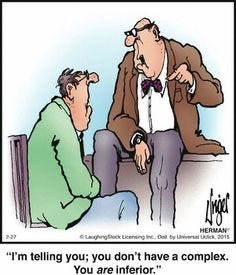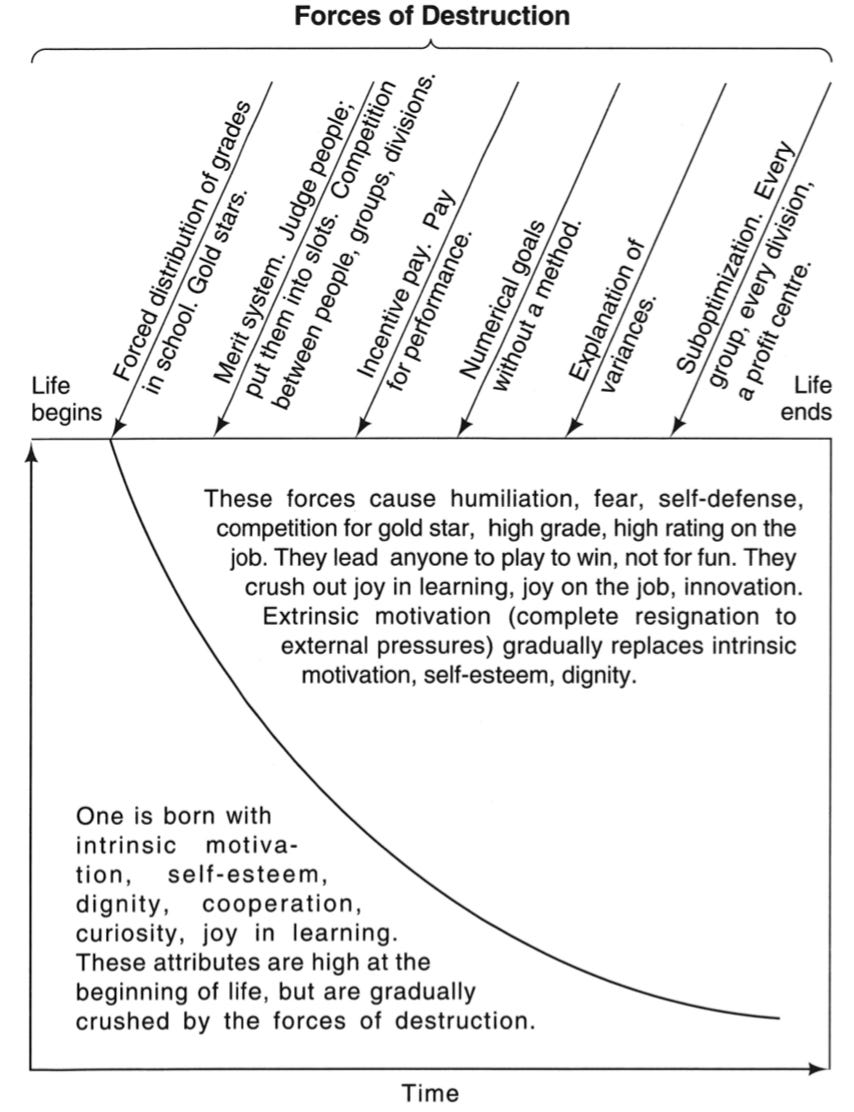Knowledge of Psychology
An Indispensable Aid for Transformation
The various segments of the System of Profound Knowledge proposed here can not be separated. They interact with each other. Thus psychology is incomplete without knowledge of variation. A manager of people needs to understand that all people are different. This is not ranking people. He needs to understand that the performance of anyone is governed largely by the system that he works in, the responsibility of management. A psychologist that possesses even a crude understanding of variation as will be learned in the experiment with the Red Beads (Ch. 7) could no longer participate in refinement of a plan for ranking people…
A leader of transformation, and managers involved, need to learn the psychology of individuals, the psychology of a group, the psychology of society, and the psychology of change.
- Dr. W.E. Deming, The New Economics, 3rd ed., p. 64
Psychology helps us to understand people, interaction between people and circumstances, interaction between customer and supplier, interaction between teacher and pupil, interaction between a manager and his people and any system of management.
- Dr. W.E. Deming, The New Economics, 3rd ed., p. 73
For Dr. Deming, psychology was integral to the work of transformation of management because ultimately his aim was to improve the lot of people wherever they may work, employees and leaders alike. Over the course of his career he observed that the techniques and tactics used in the prevailing style of Western management damaged people and it wasn’t entirely the fault of leadership who, like their staff, were never taught any different. Hence, we see throughout his theory a disdain for incentives, ratings, rankings, and win/lose competition which he saw as directly contributing to the destruction of individual motivation and self-worth and instead an emphasis on cooperation, teamwork, intrinsic motivation, and genuine joy in work. This required leadership to acquire some knowledge of psychology.
Consider the context of your own experiences being managed or managing others. What were the psychological effects at play? In what ways were you affected? What were the unintended consequences? How did they affect your relationships or dispositions toward others? What would you do differently knowing some of Deming’s observations? How does Dr. Deming’s advice compare with the modern guidance you might read in The Harvard Business Review or in LinkedIn posts?
Bonus Material: Neuroscience
It might surprise you to know that Dr. Deming was extremely interested in the field of neuroscience in his later years and sought out scholars and scientists to help him learn about the then-nascent field of study. In fact, as neuroscience researcher JW Wilson explains in his fascinating talk at the 2012 Deming Institute Fall Conference, Deming’s System of Profound Knowledge is itself a bit of a “brain hack”:
He found that learning and applying the four domains work in concert to jump start your brain into an optimized learning state that simultaneously activates multiple areas such as the prefrontal cortex and limbic system while causing physical changes to your brain chemistry . As he notes:
There has to be massive [neural] firing in your brain before learning can take place. Dramatic, massive firing…
You physically change, but no change happens unless there’s simultaneous firing in diverse groups of neurons… blowing magnesium plugs out of NMDA receptor sites and basically you’re transforming the whole inside of that neuron which in turn transforms you.
Upshot? Deming was more than prescient when he observed that “the first step is transformation of the individual”. This is why learning to see and think through a systems lens using the System of Profound Knowledge is so powerful.




